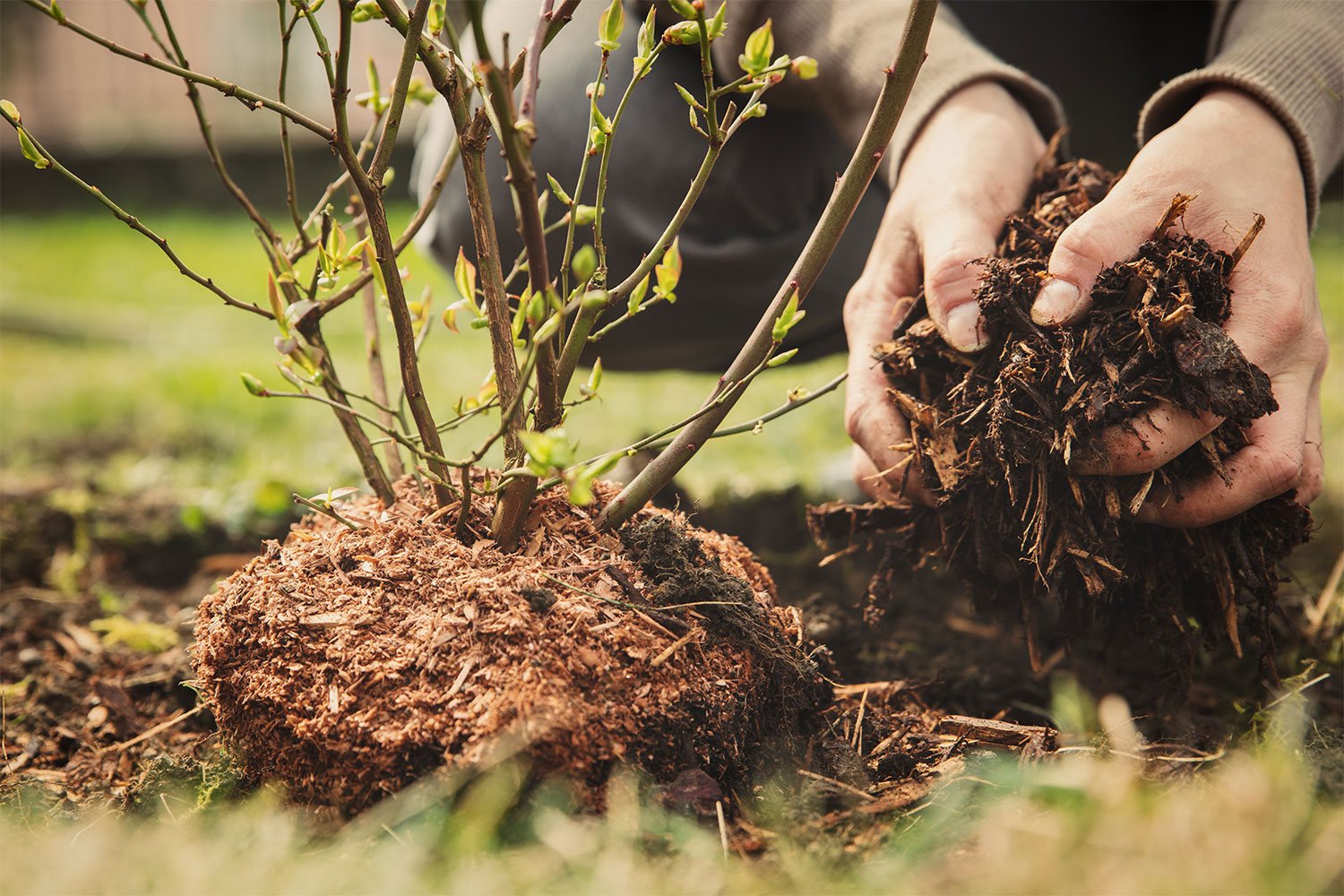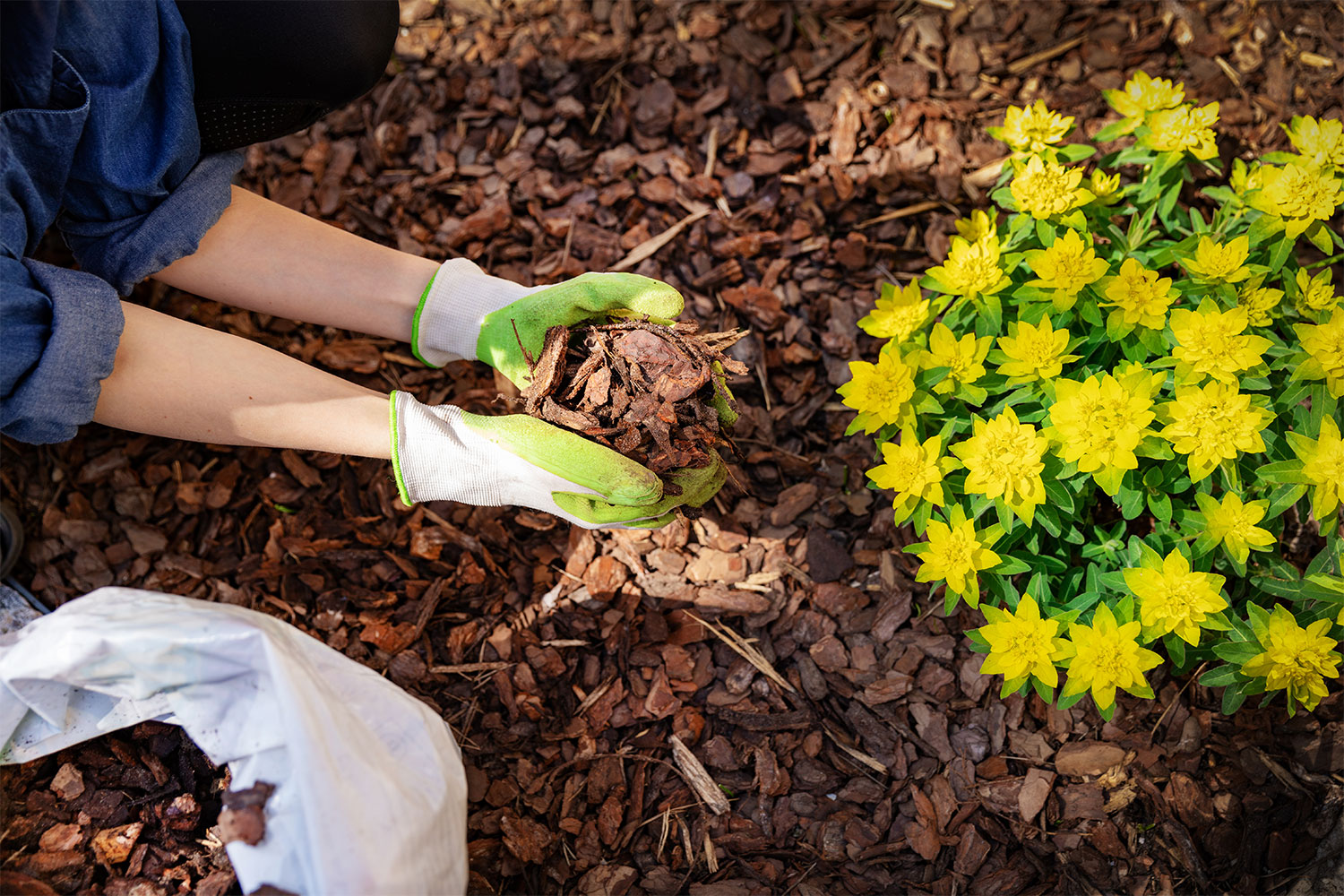Organic and all-natural products are picking up in popularity as people start to lean toward more environmentally healthy trends. So, when it comes to adding some protective mulch to your garden, organic may be a good option to consider. From its benefits to what it is exactly, we’ll help you get the scoop on organic mulch and how it can benefit your plants.
What’s in organic mulch?
The simplest way to describe organic mulch is that it is made of anything that was once living. The term “organic” means something is created from living matter. Because there are so many natural materials, it is easy to see why there are so many great organic mulch options for your garden. From leaves to grass and bark to wood chips, there is no shortage of materials that you can find in organic mulch. Whether you create your own or purchase a store-bought option, organic mulch will benefit your garden, plants, and the environment tremendously.

Is organic mulch good in gardens?
To say that organic mulch is good in gardens is an understatement. With the ability to add a variety of nutrients to the soil and your plants, organic mulch is a great way to improve the overall health of your garden. Organic mulch can add other helpful benefits like:
- Protection from soil erosion
- Plant root insulation from cold weather
- Added attractiveness to the garden bed
- Reduction of weed growth
- Ability to hold onto moisture
- Biodegradation into the soil for increased nutrients and overall health
What’s the best kind of organic mulch?
Although you can’t go wrong with most types of organic mulch, there are a few that stand out from the rest. With all of them offering numerous benefits from water retention to additional nutritional value, you may think it’s impossible to choose. So, to figure out the right type for your garden, check out these homemade and store-bought picks that leave out nothing for the ideal organic mulch:
Bark. Bark is a great, long-lasting option that will stick around and benefit your garden for months. Sourced from tree trunks, tree bark is sturdy, absorbent, and insulating, making it a great option for a variety of garden beds. Common types of bark organic mulch include cedar, pine, and cypress.
Wood chips. When it comes to finding wood chips, it is important to look for completely all-natural options. Many store-bought wood chip varieties are dyed or treated for more long-lasting durability. This should be avoided since it is bad for your plants and the environment.

Pine straw. A truly affordable option, pine straw can work great as a protective layer against weed growth. When it degrades it tends to make the soil quite acidic, so it is important to place it around plants that thrive in this type of environment.
Compost. Compost is a great homemade option. You can purchase a compost bucket or just use any container with a lid as your own compost receptacle. To create your own compost, simply toss in your natural leftovers like banana peels, coffee grounds, or grass clippings and let nature do the rest. When you spread compost around your garden bed, you are adding a remarkable amount of nutrients that will ensure a flourishing crop of plants.
Vegetables typically require a lot of nutrients when it comes to growing a bountiful harvest of healthy goodness. Because of this, many vegetable growers choose to add fertilizer to their soil for the best results. Rather than stick to this traditional method, you can actually give your veggie plants everything they need with organic mulch. When it comes to choosing the best of the best for your vegetables, these options take the cake:
- Compost
- Shredded, dry leaves
- Straw
- Newspaper
- Grass clippings
Organic mulch is all about repurposing a once living aspect of a plant. Whether it be the leaves, pine needles, or bark, all of these materials make a great, nutritious mulch to help your garden thrive. Organic mulch features all of the great benefits of regular mulch with the added benefit of biodegrading into the soil below. This helps your plants gain everything they need to provide you with a lively, lush crop of goodness.
Editors' Recommendations
- 3 incredible reasons why you should be using coffee grounds in your garden
- Have you ever wondered if potatoes are fruits or vegetables? We have answers
- Keep your yard happy all year with these 5 grasses that grow in the winter
- A guide to winter lawn fertilizer for keeping your turf healthy this season
- 4 November garden plants you should consider growing



